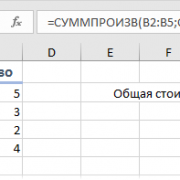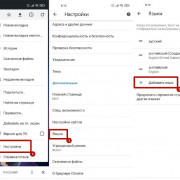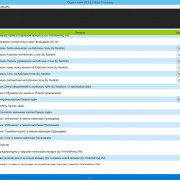Pst to gmt converter
Содержание:
Pacific Standard Time
Offset: PST is 8 hours behind Greenwich Mean Time (GMT) and is used in North America
Countries: It is used in following countries: Canada, Mexico, United States
Principal Cities: The largest city in the PST timezone is Los Angeles from USA with population about 3.793 million people. Other major cities in the area are Vancouver, Tijuana, San Diego, San Jose
French: HNP — Heure Normale du Pacifique
Spanish: PT — Tiempo del Pacífico, PT — Zona Noroeste

PST timezone map
Start: Pacific Standard Time (PST) started on Sunday, November 7, 2021 at 2:00 am local time and clocks were set one hour back to Sunday, November 7, 2021, 1:00 am. Standard time starts annually the on first Sunday of November.
End: Pacific Standard Time (PST) ends on Sunday, March 13, 2022 at 2:00 am local time and clocks are set one hour forward to Sunday, March 13, 2022, 3:00 am local daylight time instead. Standard time starts annually the on second Sunday of March.
W3C/ISO-8601: International standard covering representation and exchange of dates and time-related data
- -08 — basic short
- -0800 — basic
- -08:00 — extended
-0800 — sign character (-) followed by a four digit time providing hours (08) and minutes (00) of the offset. Indicates eight hour and zero minutes time differences to the west of the zero meridian.
Military/NATO: Used by the U.S. military, Chinese military and others
- Uniform — Military abbreviation for PST
- U — short form of ‘Uniform’
IANA/Olson: Reflects PST time zone boundaries defined by political bodies, primarily intended for use with computer programs and operating systems
- America/Ensenada
- America/Los_Angeles
- America/Santa_Isabel
- America/Tijuana
- America/Vancouver
- Canada/Pacific
- Mexico/BajaNorte
- PST8PDT
- US/Pacific
PST Abbreviation: Several time zones share PST abbreviation and it could refer to these time zones
- Pacific Standard Time — UTC -8
- Pitcairn Standard Time — UTC -8
- Peru Standard Time — UTC -5
Central European Time
Offset: CET is 1 hour ahead Greenwich Mean Time (GMT) and is used in Europe
Countries: It is used in following countries: Andorra, Albania, Austria, Bosnia & Herzegovina, Belgium, Switzerland, Czech Republic, Germany, Denmark, Algeria, Spain, France, Gibraltar, Croatia, Hungary, Italy, Liechtenstein, Luxembourg, Monaco, Montenegro, North Macedonia, Malta, Netherlands, Norway, Poland, Serbia, Sweden, Slovenia, Svalbard & Jan Mayen, Slovakia, San Marino, Tunisia, Vatican City
Principal Cities: The largest city in the CET timezone is Berlin from Germany with population about 3.426 million people. Other major cities in the area are Madrid, Rome, Paris, Algiers
German: MEZ — Mitteleuropäische Zeit
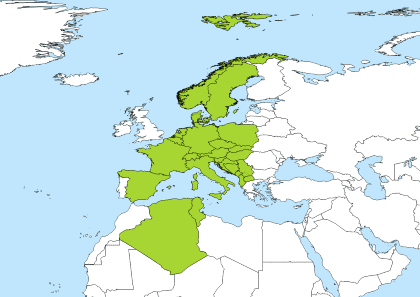
CET timezone map
Start: Central European Time (CET) started on Sunday, October 31, 2021 at 3:00 am local time and clocks were set one hour back to Sunday, October 31, 2021, 2:00 am. Standard time starts annually the on last Sunday of October.
End: Central European Time (CET) ends on Sunday, March 27, 2022 at 2:00 am local time and clocks are set one hour forward to Sunday, March 27, 2022, 3:00 am local daylight time instead. Standard time starts annually the on last Sunday of March.
W3C/ISO-8601: International standard covering representation and exchange of dates and time-related data
- +01 — basic short
- +0100 — basic
- +01:00 — extended
+0100 — sign character (+) followed by a four digit time providing hours (01) and minutes (00) of the offset. Indicates one hour and zero minutes time differences to the east of the zero meridian.
Military/NATO: Used by the U.S. military, Chinese military and others
- Alpha — Military abbreviation for CET
- A — short form of ‘Alpha’
IANA/Olson: Reflects CET time zone boundaries defined by political bodies, primarily intended for use with computer programs and operating systems
- Africa/Algiers
- Africa/Ceuta
- Africa/Tunis
- Arctic/Longyearbyen
- Atlantic/Jan_Mayen
- CET
- Europe/Amsterdam
- Europe/Andorra
- Europe/Belgrade
- Europe/Berlin
- Europe/Bratislava
- Europe/Brussels
- Europe/Budapest
- Europe/Busingen
- Europe/Copenhagen
- Europe/Gibraltar
- Europe/Ljubljana
- Europe/Luxembourg
- Europe/Madrid
- Europe/Malta
- Europe/Monaco
- Europe/Oslo
- Europe/Paris
- Europe/Podgorica
- Europe/Prague
- Europe/Rome
- Europe/San_Marino
- Europe/Sarajevo
- Europe/Skopje
- Europe/Stockholm
- Europe/Tirane
- Europe/Vaduz
- Europe/Vatican
- Europe/Vienna
- Europe/Warsaw
- Europe/Zagreb
- Europe/Zurich
- Poland
Pacific Standard Time
Offset: PST is 8 hours behind Greenwich Mean Time (GMT) and is used in North America
Countries: It is used in following countries: Canada, Mexico, United States
Principal Cities: The largest city in the PST timezone is Los Angeles from USA with population about 3.793 million people. Other major cities in the area are Vancouver, Tijuana, San Diego, San Jose
French: HNP — Heure Normale du Pacifique
Spanish: PT — Tiempo del Pacífico, PT — Zona Noroeste

PST timezone map
Start: Pacific Standard Time (PST) started on Sunday, November 7, 2021 at 2:00 am local time and clocks were set one hour back to Sunday, November 7, 2021, 1:00 am. Standard time starts annually the on first Sunday of November.
End: Pacific Standard Time (PST) ends on Sunday, March 13, 2022 at 2:00 am local time and clocks are set one hour forward to Sunday, March 13, 2022, 3:00 am local daylight time instead. Standard time starts annually the on second Sunday of March.
W3C/ISO-8601: International standard covering representation and exchange of dates and time-related data
- -08 — basic short
- -0800 — basic
- -08:00 — extended
-0800 — sign character (-) followed by a four digit time providing hours (08) and minutes (00) of the offset. Indicates eight hour and zero minutes time differences to the west of the zero meridian.
Military/NATO: Used by the U.S. military, Chinese military and others
- Uniform — Military abbreviation for PST
- U — short form of ‘Uniform’
IANA/Olson: Reflects PST time zone boundaries defined by political bodies, primarily intended for use with computer programs and operating systems
- America/Ensenada
- America/Los_Angeles
- America/Santa_Isabel
- America/Tijuana
- America/Vancouver
- Canada/Pacific
- Mexico/BajaNorte
- PST8PDT
- US/Pacific
PST Abbreviation: Several time zones share PST abbreviation and it could refer to these time zones
- Pacific Standard Time — UTC -8
- Pitcairn Standard Time — UTC -8
- Peru Standard Time — UTC -5
Pacific Standard Time
Offset: PST is 8 hours behind Greenwich Mean Time (GMT) and is used in North America
Countries: It is used in following countries: Canada, Mexico, United States
Principal Cities: The largest city in the PST timezone is Los Angeles from USA with population about 3.793 million people. Other major cities in the area are Vancouver, Tijuana, San Diego, San Jose
French: HNP — Heure Normale du Pacifique
Spanish: PT — Tiempo del Pacífico, PT — Zona Noroeste

PST timezone map
Start: Pacific Standard Time (PST) started on Sunday, November 7, 2021 at 2:00 am local time and clocks were set one hour back to Sunday, November 7, 2021, 1:00 am. Standard time starts annually the on first Sunday of November.
End: Pacific Standard Time (PST) ends on Sunday, March 13, 2022 at 2:00 am local time and clocks are set one hour forward to Sunday, March 13, 2022, 3:00 am local daylight time instead. Standard time starts annually the on second Sunday of March.
W3C/ISO-8601: International standard covering representation and exchange of dates and time-related data
- -08 — basic short
- -0800 — basic
- -08:00 — extended
-0800 — sign character (-) followed by a four digit time providing hours (08) and minutes (00) of the offset. Indicates eight hour and zero minutes time differences to the west of the zero meridian.
Military/NATO: Used by the U.S. military, Chinese military and others
- Uniform — Military abbreviation for PST
- U — short form of ‘Uniform’
IANA/Olson: Reflects PST time zone boundaries defined by political bodies, primarily intended for use with computer programs and operating systems
- America/Ensenada
- America/Los_Angeles
- America/Santa_Isabel
- America/Tijuana
- America/Vancouver
- Canada/Pacific
- Mexico/BajaNorte
- PST8PDT
- US/Pacific
PST Abbreviation: Several time zones share PST abbreviation and it could refer to these time zones
- Pacific Standard Time — UTC -8
- Pitcairn Standard Time — UTC -8
- Peru Standard Time — UTC -5
Time zones with the GMT -8 offset:
- AKDT — Alaska Daylight Time
- PST — Pacific Standard Time
- PT — Pacific Time
- PST — Pitcairn Standard Time
- U — Uniform Time Zone
Pacific Standard Time
Offset: PST is 8 hours behind Greenwich Mean Time (GMT) and is used in North America
Countries: It is used in following countries: Canada, Mexico, United States
Principal Cities: The largest city in the PST timezone is Los Angeles from USA with population about 3.793 million people. Other major cities in the area are Vancouver, Tijuana, San Diego, San Jose
French: HNP — Heure Normale du Pacifique
Spanish: PT — Tiempo del Pacífico, PT — Zona Noroeste

PST timezone map
Start: Pacific Standard Time (PST) started on Sunday, November 7, 2021 at 2:00 am local time and clocks were set one hour back to Sunday, November 7, 2021, 1:00 am. Standard time starts annually the on first Sunday of November.
End: Pacific Standard Time (PST) ends on Sunday, March 13, 2022 at 2:00 am local time and clocks are set one hour forward to Sunday, March 13, 2022, 3:00 am local daylight time instead. Standard time starts annually the on second Sunday of March.
W3C/ISO-8601: International standard covering representation and exchange of dates and time-related data
- -08 — basic short
- -0800 — basic
- -08:00 — extended
-0800 — sign character (-) followed by a four digit time providing hours (08) and minutes (00) of the offset. Indicates eight hour and zero minutes time differences to the west of the zero meridian.
Military/NATO: Used by the U.S. military, Chinese military and others
- Uniform — Military abbreviation for PST
- U — short form of ‘Uniform’
IANA/Olson: Reflects PST time zone boundaries defined by political bodies, primarily intended for use with computer programs and operating systems
- America/Ensenada
- America/Los_Angeles
- America/Santa_Isabel
- America/Tijuana
- America/Vancouver
- Canada/Pacific
- Mexico/BajaNorte
- PST8PDT
- US/Pacific
PST Abbreviation: Several time zones share PST abbreviation and it could refer to these time zones
- Pacific Standard Time — UTC -8
- Pitcairn Standard Time — UTC -8
- Peru Standard Time — UTC -5
Pacific Standard Time
Offset: PST is 8 hours behind Greenwich Mean Time (GMT) and is used in North America
Countries: It is used in following countries: Canada, Mexico, United States
Principal Cities: The largest city in the PST timezone is Los Angeles from USA with population about 3.793 million people. Other major cities in the area are Vancouver, Tijuana, San Diego, San Jose
French: HNP — Heure Normale du Pacifique
Spanish: PT — Tiempo del Pacífico, PT — Zona Noroeste

PST timezone map
Start: Pacific Standard Time (PST) started on Sunday, November 7, 2021 at 2:00 am local time and clocks were set one hour back to Sunday, November 7, 2021, 1:00 am. Standard time starts annually the on first Sunday of November.
End: Pacific Standard Time (PST) ends on Sunday, March 13, 2022 at 2:00 am local time and clocks are set one hour forward to Sunday, March 13, 2022, 3:00 am local daylight time instead. Standard time starts annually the on second Sunday of March.
W3C/ISO-8601: International standard covering representation and exchange of dates and time-related data
- -08 — basic short
- -0800 — basic
- -08:00 — extended
-0800 — sign character (-) followed by a four digit time providing hours (08) and minutes (00) of the offset. Indicates eight hour and zero minutes time differences to the west of the zero meridian.
Military/NATO: Used by the U.S. military, Chinese military and others
- Uniform — Military abbreviation for PST
- U — short form of ‘Uniform’
IANA/Olson: Reflects PST time zone boundaries defined by political bodies, primarily intended for use with computer programs and operating systems
- America/Ensenada
- America/Los_Angeles
- America/Santa_Isabel
- America/Tijuana
- America/Vancouver
- Canada/Pacific
- Mexico/BajaNorte
- PST8PDT
- US/Pacific
PST Abbreviation: Several time zones share PST abbreviation and it could refer to these time zones
- Pacific Standard Time — UTC -8
- Pitcairn Standard Time — UTC -8
- Peru Standard Time — UTC -5
Time zones with the GMT -8 offset:
- AKDT — Alaska Daylight Time
- PST — Pacific Standard Time
- PT — Pacific Time
- PST — Pitcairn Standard Time
- U — Uniform Time Zone
Pacific Standard Time
Offset: PST is 8 hours behind Greenwich Mean Time (GMT) and is used in North America
Countries: It is used in following countries: Canada, Mexico, United States
Principal Cities: The largest city in the PST timezone is Los Angeles from USA with population about 3.793 million people. Other major cities in the area are Vancouver, Tijuana, San Diego, San Jose
French: HNP — Heure Normale du Pacifique
Spanish: PT — Tiempo del Pacífico, PT — Zona Noroeste

PST timezone map
Start: Pacific Standard Time (PST) started on Sunday, November 7, 2021 at 2:00 am local time and clocks were set one hour back to Sunday, November 7, 2021, 1:00 am. Standard time starts annually the on first Sunday of November.
End: Pacific Standard Time (PST) ends on Sunday, March 13, 2022 at 2:00 am local time and clocks are set one hour forward to Sunday, March 13, 2022, 3:00 am local daylight time instead. Standard time starts annually the on second Sunday of March.
W3C/ISO-8601: International standard covering representation and exchange of dates and time-related data
- -08 — basic short
- -0800 — basic
- -08:00 — extended
-0800 — sign character (-) followed by a four digit time providing hours (08) and minutes (00) of the offset. Indicates eight hour and zero minutes time differences to the west of the zero meridian.
Military/NATO: Used by the U.S. military, Chinese military and others
- Uniform — Military abbreviation for PST
- U — short form of ‘Uniform’
IANA/Olson: Reflects PST time zone boundaries defined by political bodies, primarily intended for use with computer programs and operating systems
- America/Ensenada
- America/Los_Angeles
- America/Santa_Isabel
- America/Tijuana
- America/Vancouver
- Canada/Pacific
- Mexico/BajaNorte
- PST8PDT
- US/Pacific
PST Abbreviation: Several time zones share PST abbreviation and it could refer to these time zones
- Pacific Standard Time — UTC -8
- Pitcairn Standard Time — UTC -8
- Peru Standard Time — UTC -5
Central European Time
Offset: CET is 1 hour ahead Greenwich Mean Time (GMT) and is used in Europe
Countries: It is used in following countries: Andorra, Albania, Austria, Bosnia & Herzegovina, Belgium, Switzerland, Czech Republic, Germany, Denmark, Algeria, Spain, France, Gibraltar, Croatia, Hungary, Italy, Liechtenstein, Luxembourg, Monaco, Montenegro, North Macedonia, Malta, Netherlands, Norway, Poland, Serbia, Sweden, Slovenia, Svalbard & Jan Mayen, Slovakia, San Marino, Tunisia, Vatican City
Principal Cities: The largest city in the CET timezone is Berlin from Germany with population about 3.426 million people. Other major cities in the area are Madrid, Rome, Paris, Algiers
German: MEZ — Mitteleuropäische Zeit

CET timezone map
Start: Central European Time (CET) started on Sunday, October 31, 2021 at 3:00 am local time and clocks were set one hour back to Sunday, October 31, 2021, 2:00 am. Standard time starts annually the on last Sunday of October.
End: Central European Time (CET) ends on Sunday, March 27, 2022 at 2:00 am local time and clocks are set one hour forward to Sunday, March 27, 2022, 3:00 am local daylight time instead. Standard time starts annually the on last Sunday of March.
W3C/ISO-8601: International standard covering representation and exchange of dates and time-related data
- +01 — basic short
- +0100 — basic
- +01:00 — extended
+0100 — sign character (+) followed by a four digit time providing hours (01) and minutes (00) of the offset. Indicates one hour and zero minutes time differences to the east of the zero meridian.
Military/NATO: Used by the U.S. military, Chinese military and others
- Alpha — Military abbreviation for CET
- A — short form of ‘Alpha’
IANA/Olson: Reflects CET time zone boundaries defined by political bodies, primarily intended for use with computer programs and operating systems
- Africa/Algiers
- Africa/Ceuta
- Africa/Tunis
- Arctic/Longyearbyen
- Atlantic/Jan_Mayen
- CET
- Europe/Amsterdam
- Europe/Andorra
- Europe/Belgrade
- Europe/Berlin
- Europe/Bratislava
- Europe/Brussels
- Europe/Budapest
- Europe/Busingen
- Europe/Copenhagen
- Europe/Gibraltar
- Europe/Ljubljana
- Europe/Luxembourg
- Europe/Madrid
- Europe/Malta
- Europe/Monaco
- Europe/Oslo
- Europe/Paris
- Europe/Podgorica
- Europe/Prague
- Europe/Rome
- Europe/San_Marino
- Europe/Sarajevo
- Europe/Skopje
- Europe/Stockholm
- Europe/Tirane
- Europe/Vaduz
- Europe/Vatican
- Europe/Vienna
- Europe/Warsaw
- Europe/Zagreb
- Europe/Zurich
- Poland
Time zones with the GMT +1 offset:
- BST — British Summer Time
- CET — Central European Time
- IST — Irish Standard Time
- WEST — Western European Summer Time
- A — Alpha Time Zone
- CET — Central European Time
- MEZ — Mitteleuropäische Zeit
- WAT — West Africa Time
- WST — Western Sahara Summer Time
- BMT — Biel Mean Time
Japan Standard Time
Offset: JST is 9 hours ahead Greenwich Mean Time (GMT) and is used in Asia
Countries: It is used in following countries: Japan
Principal Cities: The largest city in the JST timezone is Tokyo from Japan with population about 8.337 million people. Other major cities in the area are Yokohama, Osaka shi, Nagoya shi, Sapporo
Daylight Saving: Japan Standard Time (JST) is not adjusted for daylight saving therefore JST remains the same through out the year. This means, unlike some time zones where the clock is set forward by one hour every summer and backward by one hour during winter to adjust for daylight saving, Japan Standard Time remains the same

JST timezone map
W3C/ISO-8601: International standard covering representation and exchange of dates and time-related data
- +09 — basic short
- +0900 — basic
- +09:00 — extended
+0900 — sign character (+) followed by a four digit time providing hours (09) and minutes (00) of the offset. Indicates nine hour and zero minutes time differences to the east of the zero meridian.
Military/NATO: Used by the U.S. military, Chinese military and others
- India — Military abbreviation for JST
- I — short form of ‘India’
IANA/Olson: Reflects JST time zone boundaries defined by political bodies, primarily intended for use with computer programs and operating systems
- Asia/Tokyo
- Japan
Japan Standard Time
Offset: JST is 9 hours ahead Greenwich Mean Time (GMT) and is used in Asia
Countries: It is used in following countries: Japan
Principal Cities: The largest city in the JST timezone is Tokyo from Japan with population about 8.337 million people. Other major cities in the area are Yokohama, Osaka shi, Nagoya shi, Sapporo
Daylight Saving: Japan Standard Time (JST) is not adjusted for daylight saving therefore JST remains the same through out the year. This means, unlike some time zones where the clock is set forward by one hour every summer and backward by one hour during winter to adjust for daylight saving, Japan Standard Time remains the same

JST timezone map
W3C/ISO-8601: International standard covering representation and exchange of dates and time-related data
- +09 — basic short
- +0900 — basic
- +09:00 — extended
+0900 — sign character (+) followed by a four digit time providing hours (09) and minutes (00) of the offset. Indicates nine hour and zero minutes time differences to the east of the zero meridian.
Military/NATO: Used by the U.S. military, Chinese military and others
- India — Military abbreviation for JST
- I — short form of ‘India’
IANA/Olson: Reflects JST time zone boundaries defined by political bodies, primarily intended for use with computer programs and operating systems
- Asia/Tokyo
- Japan
Time zones with the GMT +9 offset:
- AWDT — Australian Western Daylight Time
- CHOST — Choibalsan Summer Time
- I — India Time Zone
- IRKST — Irkutsk Summer Time
- JST — Japan Standard Time
- KST — Korea Standard Time
- PWT — Palau Time
- TLT — East Timor Time
- ULAST — Ulaanbaatar Summer Time
- WIT — Eastern Indonesian Time
- YAKT — Yakutsk Time
Australian Eastern Standard Time
Offset: AEST is 10 hours ahead Greenwich Mean Time (GMT) and is used in Australia
Countries: It is used in following countries: Australia
Principal Cities: The largest city in the AEST timezone is Sydney from Australia with population about 4.627 million people. Other major cities in the area are Melbourne, Brisbane, Gold Coast, Canberra
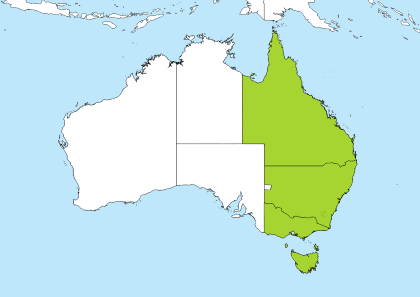
AEST timezone map
End: Australian Eastern Standard Time (AEST) has ended on Sunday, October 3, 2021 at 2:00 am local time and clocks were set one hour forward to Sunday, October 3, 2021, 3:00 am local daylight time instead. Standard time ends annually the on first Sunday of October.
Start: Australian Eastern Standard Time (AEST) starts on Sunday, April 3, 2022 at 3:00 am local time and clocks are set one hour back to Sunday, April 3, 2022, 2:00 am. Standard time starts annually the on first Sunday of April.
Australian Eastern Standard Time (AEST) is used in Queensland, Victoria, Tasmania, New South Wales (except Broken Hill), Australian Capital Territory and in folling major cities Brisbane, Sydney, Melbourne, Hobart, Canberra
Only part of Australia observe daylight saving. It is used in New South Wales, Victoria, South Australia, Tasmania, and the Australian Capital Territory. Daylight saving is not observed in Queensland, Western Australia or the Northern Territory.
W3C/ISO-8601: International standard covering representation and exchange of dates and time-related data
- +10 — basic short
- +1000 — basic
- +10:00 — extended
+1000 — sign character (+) followed by a four digit time providing hours (10) and minutes (00) of the offset. Indicates ten hour and zero minutes time differences to the east of the zero meridian.
Military/NATO: Used by the U.S. military, Chinese military and others
- Kilo — Military abbreviation for AEST
- K — short form of ‘Kilo’
IANA/Olson: Reflects AEST time zone boundaries defined by political bodies, primarily intended for use with computer programs and operating systems
- Antarctica/Macquarie
- Australia/ACT
- Australia/Brisbane
- Australia/Canberra
- Australia/Currie
- Australia/Hobart
- Australia/Lindeman
- Australia/Melbourne
- Australia/NSW
- Australia/Queensland
- Australia/Sydney
- Australia/Tasmania
- Australia/Victoria
Time zones with the GMT +10 offset:
- AEST — Australian Eastern Standard Time
- CHUT — Chuuk Time
- ChST — Chamorro Standard Time
- K — Kilo Time Zone
- KDT — Korea Daylight Time
- PGT — Papua New Guinea Time
- VLAT — Vladivostok Time
- YAKST — Yakutsk Summer Time
- YAPT — Yap Time
Pacific Standard Time
Offset: PST is 8 hours behind Greenwich Mean Time (GMT) and is used in North America
Countries: It is used in following countries: Canada, Mexico, United States
Principal Cities: The largest city in the PST timezone is Los Angeles from USA with population about 3.793 million people. Other major cities in the area are Vancouver, Tijuana, San Diego, San Jose
French: HNP — Heure Normale du Pacifique
Spanish: PT — Tiempo del Pacífico, PT — Zona Noroeste

PST timezone map
Start: Pacific Standard Time (PST) started on Sunday, November 7, 2021 at 2:00 am local time and clocks were set one hour back to Sunday, November 7, 2021, 1:00 am. Standard time starts annually the on first Sunday of November.
End: Pacific Standard Time (PST) ends on Sunday, March 13, 2022 at 2:00 am local time and clocks are set one hour forward to Sunday, March 13, 2022, 3:00 am local daylight time instead. Standard time starts annually the on second Sunday of March.
W3C/ISO-8601: International standard covering representation and exchange of dates and time-related data
- -08 — basic short
- -0800 — basic
- -08:00 — extended
-0800 — sign character (-) followed by a four digit time providing hours (08) and minutes (00) of the offset. Indicates eight hour and zero minutes time differences to the west of the zero meridian.
Military/NATO: Used by the U.S. military, Chinese military and others
- Uniform — Military abbreviation for PST
- U — short form of ‘Uniform’
IANA/Olson: Reflects PST time zone boundaries defined by political bodies, primarily intended for use with computer programs and operating systems
- America/Ensenada
- America/Los_Angeles
- America/Santa_Isabel
- America/Tijuana
- America/Vancouver
- Canada/Pacific
- Mexico/BajaNorte
- PST8PDT
- US/Pacific
PST Abbreviation: Several time zones share PST abbreviation and it could refer to these time zones
- Pacific Standard Time — UTC -8
- Pitcairn Standard Time — UTC -8
- Peru Standard Time — UTC -5
Greenwich Mean Time
Offset: GMT is 0 hours ahead Greenwich Mean Time (GMT) and is used in Europe
Countries: It is used in following countries: Burkina Faso, Côte d’Ivoire, Britain (UK), Guernsey, Ghana, Greenland, Gambia, Guinea, Guinea-Bissau, Ireland, Isle of Man, Iceland, Jersey, Liberia, Mali, Mauritania, St Helena, Sierra Leone, Senegal, Sao Tome & Principe, Togo
Principal Cities: The largest city in the GMT timezone is London from United Kingdom with population about 7.557 million people. Other major cities in the area are Abidjan, Dakar, Grand Dakar, Accra
Greenwich Mean Time (GMT) originally referred to the mean solar time at the Royal Observatory in Greenwich, London. It is now often used to refer to Coordinated Universal Time (UTC) when this is viewed as a time zone, and in casual use for the most parts it is the same. In military GMT is known as Zulu time.Greenwich Mean Time was the same as Universal Time (UT), until the introduction of UTC in 1972 a standard astronomical concept used in many technical fields.
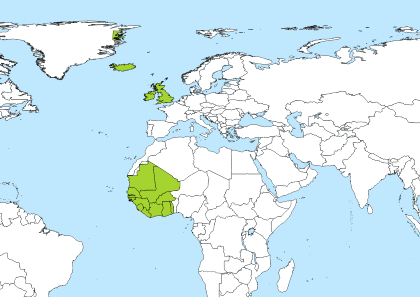
GMT timezone map
W3C/ISO-8601: International standard covering representation and exchange of dates and time-related data
- Z — is the zone designator for the zero UTC/GMT offset, also known as ‘Zulu’ time
- +00 — basic short
- +0000 — basic
- +00:00 — extended
+0000 — sign character (+) followed by a four digit time providing hours (00) and minutes (00) of the offset. Indicates zero hour and zero minutes time differences of the zero meridian.
Military/NATO: Used by the U.S. military, Chinese military and others
- Zulu — Military abbreviation for GMT
- Z — short form of ‘Zulu’
IANA/Olson: Reflects GMT time zone boundaries defined by political bodies, primarily intended for use with computer programs and operating systems
- Africa/Abidjan
- Africa/Accra
- Africa/Bamako
- Africa/Banjul
- Africa/Bissau
- Africa/Conakry
- Africa/Dakar
- Africa/Freetown
- Africa/Lome
- Africa/Monrovia
- Africa/Nouakchott
- Africa/Ouagadougou
- Africa/Sao_Tome
- Africa/Timbuktu
- America/Danmarkshavn
- Atlantic/Reykjavik
- Atlantic/St_Helena
- Eire
- Etc/GMT
- Etc/GMT+0
- Etc/GMT-0
- Etc/GMT0
- Etc/Greenwich
- Europe/Belfast
- Europe/Dublin
- Europe/Guernsey
- Europe/Isle_of_Man
- Europe/Jersey
- Europe/London
- GB
- GB-Eire
- GMT
- GMT+0
- GMT-0
- GMT0
- Greenwich
- Iceland
GMT Abbreviation: Several time zones share GMT abbreviation and it could refer to these time zones
- Greenwich Mean Time — UTC +0
- GMT+04:00 — UTC +4
- GMT+06:00 — UTC +6
- GMT — UTC +1
- GMT+12:00 — UTC +12
Time zones with the GMT +0 offset:
- EGST — Eastern Greenland Summer Time
- GMT — Greenwich Mean Time
- WET — Western European Time
- AZOST — Azores Summer Time
- UTC — Universal Time Coordinated
- WT — Western Sahara Standard Time
- Z — Zulu Time Zone

